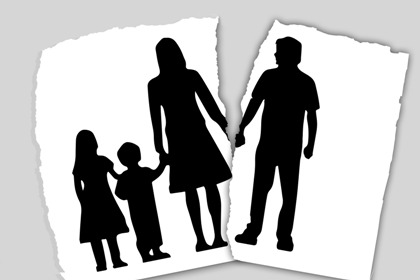
“Where does your Abba live?”
From the time my son’s friends could understand that our family looked different from their own, they began to ask questions. These little minds were curious, inquiring as to why was there no Abba home for dinner, how was it that an Ima could make kiddush on Friday night, and what did it mean that his parents were “divorced”?
These ideas were all new to them.
My son fielded these questions nonchalantly. Divorce had been his normal from a very early age, and it was what he had come to know. For his friends however, this concept of divorce was a new discovery, one with which they weren’t familiar; one they hadn’t come across in their home life and one about which they hadn’t been taught in school.
In this instance, the question posed that Shabbos afternoon came from a girl who had grown up around our family. Our kids were often back and forth between our home and theirs. She knew the lay of the land, yet today was somehow different.
As children reach kindergarten age they begin to comprehend nuances of the world around them and to grasp more advanced ideas of what norms make up the social infrastructure. They also begin to notice discrepancies amongst these norms and to question them, as young, curious minds will do. This is what happened that day when my son’s friend expressed her wonderment at never seeing his father with us. She was questioning a different family structure to that with which she had become familiar and was sincerely attempting to better understand it.
Over the years, I’ve been approached by friends and family who are wondering how to explain the idea of divorce to their own children. As a single mom, as well as a family mediator and divorce coach, I seem to attract questions of this sort, and I welcome them. As with so many questions that inquisitive young minds tend to articulate in their early school years, this one leaves many parents feeling anxious and uncomfortable.
They wonder—what if I don’t have the answers? Will my children worry that I am going to get divorced? What happens if they take this information on divorce and begin talking to their friends about it?
What parents really want to know is this: How do I speak to my child about divorce in an age-appropriate manner?
This is my answer to that question:
Let Your Child Take the Lead
Explaining divorce to children does not have to be the loaded topic parents often think it may become. As with many similar concepts in parenting, I encourage parents to allow their children to lead the conversation. Answer questions as they arise. This ensures that you will not overload the child with information, while allowing them to come away with answers to their questions.
Provide Reassurance
A common concern that I hear from parents is the worry that their child might come to think that divorce is something that happens to all parents. Reassure your child by pointing out the ways you and your spouse care for one another. Allow them to see that when you have disagreements—as we all do—you also make up and resolve them. Explain that just like sometimes they don’t get along with a sibling or friend but then make up, this is what you and your spouse do as well. We are all working on learning to reinforce relationships with the people we love.
Find a Divorced Friend or Family Member
If your young child’s first experience with divorce is through a friend or family member, you might ask whether your child can speak directly with them. This comes, of course, with a caution to please be sensitive—not all single parents will want to talk about themselves, particularly if their divorce is still fresh. If they do agree, make sure to be on hand to redirect any innocently asked, slightly too personal, queries.
Speak with Your Child’s Teacher
It may be that your child first hears of divorce within the classroom as a classmate experiences their parents’ divorce. This may be a great time to get in touch with your child’s teacher. If your child is asking about divorce at home, then there’s a decent chance that his or her classmates are asking similar questions as well. This might be an opening for the teacher to integrate the topic into class discussion through a storybook or similar means.
Be Open to Talking
Kids need to know that they can discuss anything with a parent. To come to you with a concern or question shows how deeply your child trusts you. Don’t skip over this conversation. Kids need information in order to provide them with a structural understanding of how the pieces of their world fit together. This is your opportunity to offer them another piece of that puzzle. All children yearn for the security of knowing that they can turn to their parents for direction. Their first introduction to the concept of divorce is no exception.